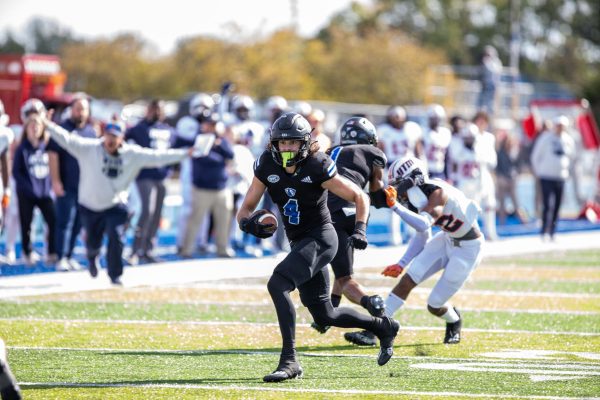
Eligibility in college sports is a very complicated thing. From redshirting to a COVID year to a medical redshirt, players in today’s game can get up to six years or more of eligibility.
Some recent examples of how crazy eligibility can get are current University of Miami tight end Cam McCormick who is in his eighth year of eligibility and still has another year and current Los Angeles Rams quarterback Stetson Bennett who won the College Football National Championship last year with Georgia when he was 25.
According to Sports Illustrated McCormick nine years started in 2016 when he redshirted as a freshman. In 2017 he played a full season as a redshirt freshman.
When a college athlete is redshirted, they are still on the team, but before June 2018 they were not allowed to play in any games. As of June 2018, athletes are able to play up to four games and still maintain their redshirt.
A medical redshirt is when an athlete sustains an injury that is season-ending. They also cannot have played in more than 30% of the games during that season and the injury can’t be after the halfway point of the season.
After 2017 is where it gets tricky for McCormick. In 2018 he got a season-ending injury that required surgery and he wasn’t able to play again until 2021. During this time, he was granted two more years of eligibility from the NCAA.
Then in 2021 he tore his Achilles tendon, and the NCAA granted him another year of eligibility. In 2022 he played his first full season since 2017. This year he is playing for the Miami Hurricanes as a redshirt senior tight end. He still has another year in 2024 because in 2020 the NCAA gave athletes competing in spring, fall, and winter sports an extra year of eligibility because of COVID-19.
Adding all of those years up gets you to nine years: four from being in college, three from medical redshirts granted by the NCAA, one from being redshirted, and one due to COVID-19.
The COVID-19 rule was the reason that Stetson Bennett and many other athletes were able to get six years of playing in college.
The way that Bennett did it was redshirting his freshman year at Georgia in 2017. He then transferred to Jones College, a two-year school in Mississippi. After his time there he transferred back to Georgia in 2019 to finish his college career.
Overall, he gained one year because of a redshirt and another year because of COVID-19. This is the way that a majority of athletes were able to get six years of eligibility without a medical redshirt.
An athlete at Eastern that has done this is graduate wide receiver Justin Thomas who played four years at Albion College before transferring to Eastern for his fifth year which he has because of the COVID rule. He then redshirted his first year at Eastern after playing four games then injuring his hip labrum. Now he is in his sixth season.
Luther Yoder can be reached at 581-2812 or at lyoder@eiu.edu.
















![[Thumbnail Edition] Senior Foward Macy McGlone, getsw the ball and gets the point during the first half of the game aginst Western Illinois University,, Eastern Illinois University Lost to Western Illinois University Thursday March 6 20205, 78-75 EIU lost making it the end of their season](https://www.dailyeasternnews.com/wp-content/uploads/2025/03/WBB_OVC_03_O-1-e1743361637111-1200x614.jpg)

















































